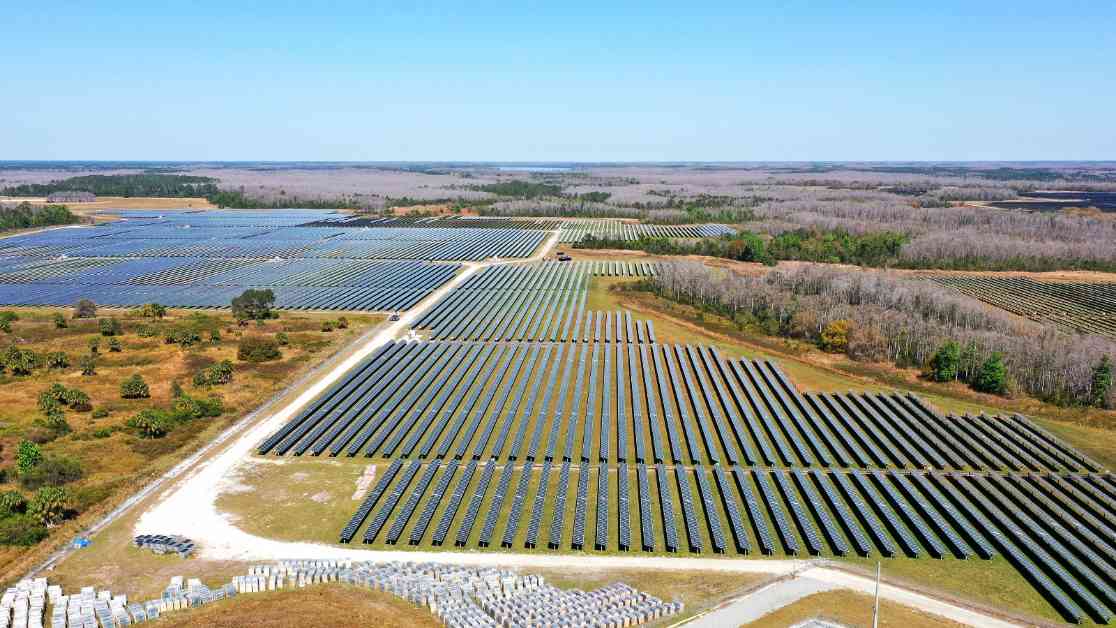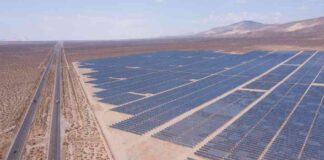Florida’s Solar Triumph: A Sun-Drenched Success Story
The Sunshine State of Florida might have erased any mention of climate change from its policies, but that hasn’t dimmed its rise as a solar powerhouse. Last year, Florida surpassed California in new utility-scale solar capacity, harnessing 3 gigawatts of large-scale solar installations, trailing only behind Texas. In the residential sector, Florida has consistently ranked second to California in rooftop solar panel installations from 2019 to 2024. Wood Mackenzie’s principal U.S. distributed solar analyst, Zoë Gaston, predicts Florida will maintain its number two spot in 2025.
Florida’s solar ascent is a testament to the state’s abundant sunshine and the impact of favorable state and federal policies. The state derives about 8 percent of its electricity from solar, with the majority still coming from fossil gas. Zachary Colletti, the executive director of the Florida chapter of Conservatives for Clean Energy, highlights Florida’s sunny disposition, emphasizing the plentiful sunshine that fuels solar energy in the state. Yet, Florida also faces a surge in extreme weather events, prompting residents to invest in solar power for home resilience.
Yoca Arditi-Rocha, the executive director of The CLEO Institute, underscores the dual benefits of solar energy—financial savings and increased home resilience. The availability of tax credits under President Joe Biden’s Inflation Reduction Act has made solar panel installations more affordable. Arditi-Rocha shares her personal experience, highlighting the appeal of the federal tax incentives that motivated her to invest in a solar system that promises cost recovery in seven years. The combination of natural resources, weather challenges, and government incentives has driven Florida’s solar revolution.
Harnessing the Sun: A Policy-Driven Initiative
Florida’s solar boom predates federal incentives, owing much to state policies that favor solar energy growth. The Florida Public Service Commission wields considerable authority over power plants, while solar plants under 75 megawatts are exempt from review and permitting under the Florida Power Plant Siting Act. Sylvia Leyva Martinez, principal utility-scale solar analyst for North America at Wood Mackenzie, credits these policies for streamlining solar farm construction for major utilities like NextEra Energy–owned Florida Power & Light.
Leyva Martinez notes that the state’s utilities have capitalized on the lenient permitting process, piecing together solar projects in smaller increments to avoid lengthy approval timelines. However, the rapid solar expansion has sparked concerns in rural communities, prompting Republican state Senator Keith Truenow to propose legislation granting more local control over solar farm siting and permitting. The proposed bill aims to address complaints about the proliferation of solar installations in rural areas, though it may introduce additional costs and hurdles for developers.
As the legislation progresses through the Legislature, the response from major utilities and lawmakers remains unclear. Governor Ron DeSantis has previously demonstrated support for solar energy by vetoing a bill in 2022 that threatened the state’s net metering program. The program allows homeowners with rooftop solar to receive compensation for the surplus electricity they generate. This move earned praise from solar advocates like Zachary Colletti, who emphasized the importance of maintaining net metering to empower Floridians in offsetting energy costs and taking ownership of their households.
The Future of Solar in the Sunshine State
The public sentiment in Florida is overwhelmingly supportive of solar energy initiatives, with a telephone survey conducted by pollster Mason-Dixon revealing that 84 percent of registered voters, including 76 percent of Republicans, endorse net metering. Yoca Arditi-Rocha stresses the bipartisan appeal of solar energy, highlighting the potential for a bright and sunny future in the Sunshine State through continued solar harnessing efforts. As Florida’s solar trajectory continues to ascend, the state stands poised to maintain its position as a solar powerhouse at the forefront of renewable energy innovation.














